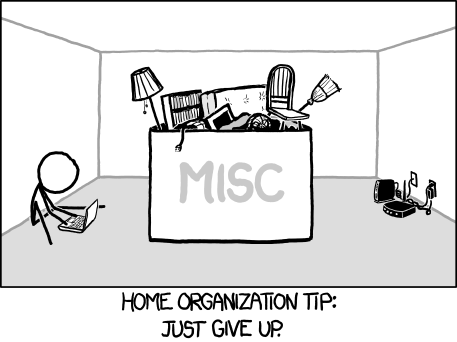In a New York shop, I once got pressure-sold something expensive I didn't really want; when I said it cost too much, I was asked what I might be prepared to pay, and we ended up haggling. Since then, I've had a rule:
- If it's a non trivial price, never decide to buy while you're in the shop
and I have been very glad of it on many occasions. I can go for a short walk to decide, and if I don't want it, I simply don't return to the shop. This means I'm deciding in calm surroundings, based on what I want rather than on embarrassment.
Are there other maxims I could adopt that would serve me equally well?
(Personal note: I'm in the Bay Area for a week after minicamp, Sunday July 29th to Sunday August 5th. Let's hang out, go to things together, help make my visit cooler! Mail me: paul at ciphergoth.org. Thanks!)

Except for languages and stuff like that, I don't think the kind of learning you get from Anki and similar is that useful. I say I learn something when it becomes truly part of me -- which Anki cannot do. Merely memorizing stuff which I could look up on Google in a few seconds if I needed to doesn't sound like a terribly useful use of my time. (Einstein didn't see the use of learning the speed of sound in air when he could look it up, and he didn't have a cellphone with an Internet connection with him all the time.)
This has not been my experience with Anki, or at least not exclusively. The optimal way to use SRS is to build a complex, redundant network of associations. In other words, to do what you'd be doing anyway, but ideally in less time and with less effort. Each repetition of a fact is an opportunity to strengthen not only the connection represented therein, but the adjacent connections in your network.
You're not just memorizing facts; you're explicitly training your internal models.